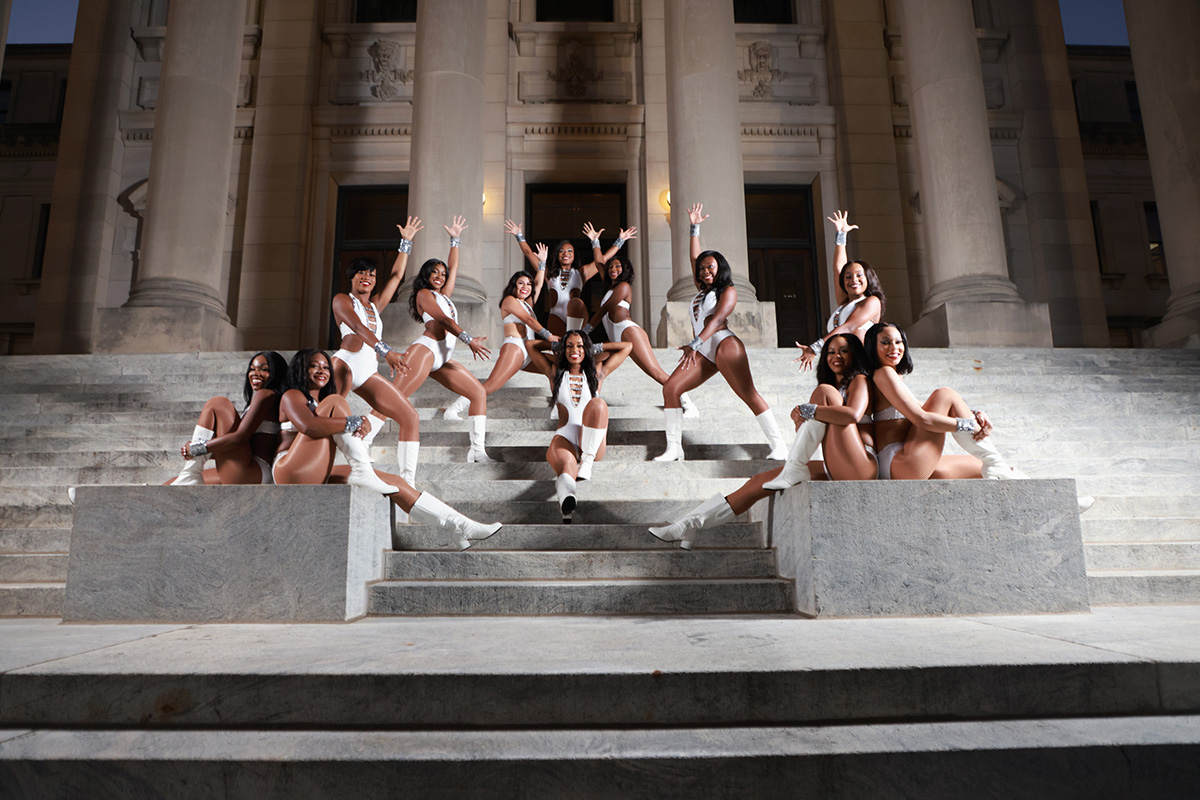Black-and-white photos of Jackson State University homecoming queens bleed into colored photos as the collection moves from the early 1950s to the late 1960s and 1970s. Dormitories with shot-out windows appear in black-and-white photos that depict JSU’s campus following the Gibbs-Green shooting on May 14, 1970. A more recent colored photo shows a JSU football player catching a pass during the Celebration Bowl against Florida A&M University in 2001.
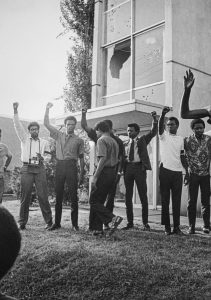
These photos make up just some of Getty Images’ “Historically Black Colleges & Universities Collection.” The Seattle, Wash.-based visual-media company selected Jackson State University as one of four recipients of the Getty Images Photo Archive Grant for HBCUs program to amplify the visual history of historic Black colleges and universities.
“There are so many images that depict us as human beings, as people who were contributors to society,” Vice President of Partnerships at Getty Images Cassandra Illidge, who is Black, told the Mississippi Free Press. “So having those visual references to understand our history, but understand it from our point of view, understanding from creators, from schools, that’s really important to change the dynamic of how we represent ourselves and how we’re represented.”
The grant will help Jackson State digitize about 50,000 archival photos from its library, which will include images of activism, education, literary and performing arts, civil rights and police violence, and portraitures of women teachers.
Illidge said Getty’s goal was to attract up to 20 Black colleges into applying, which happened, and then the company went through a meticulous review process, conducting interviews with representatives from the schools to ensure they understood the schools’ copyright ownership and how much content is actually copyrighted.
“We also ask questions about the collection to understand who the photographers were because that’s really important,” Illidge said. “Part of this is about bringing to light the photographers who did this work, so we wanted to get an understanding of that.”
“We also wanted to understand how the libraries were organized, so that would give us a better sense of how we could help with their process to do the scanning,” she added.
The company also talked to the schools about how to get students involved in the process because it is just as much a learning experience for Getty as it will be for the schools. The schools that put detailed plans for student involvement and organization into their applications became the successful recipients, Illidge said.
Claflin University, North Carolina Central University and Prairie View A&M University also are grant recipients.
“Ultimately, our goal is to work with all of the HBCUs, so even the ones that applied but didn’t win the grant this time around, we gave them insights,” the Getty vice president said. “I’ve had personal conversations with each one of them just to reinforce the fact that while they didn’t win the grant this year, we want them to apply again.”
‘A Meticulous Process’
Jackson State University Interim Dean of Libraries Dr. Locord Wilson said each school will receive a quarter of the $500,000 grant. Digitization costs can be a very expensive and meticulous process, which is why Getty Images does not do it for everyone, Illidge said.
“It is a meticulous process to make sure that you not only scan the photo, but you have to clean up the photo. Some photos are deteriorating, so it takes care, and it takes the right companies to do that,” she said. “Once you scan the photo, then you have to figure out the process to actually preserve the original photo, so that’s what we work with the schools to do.”
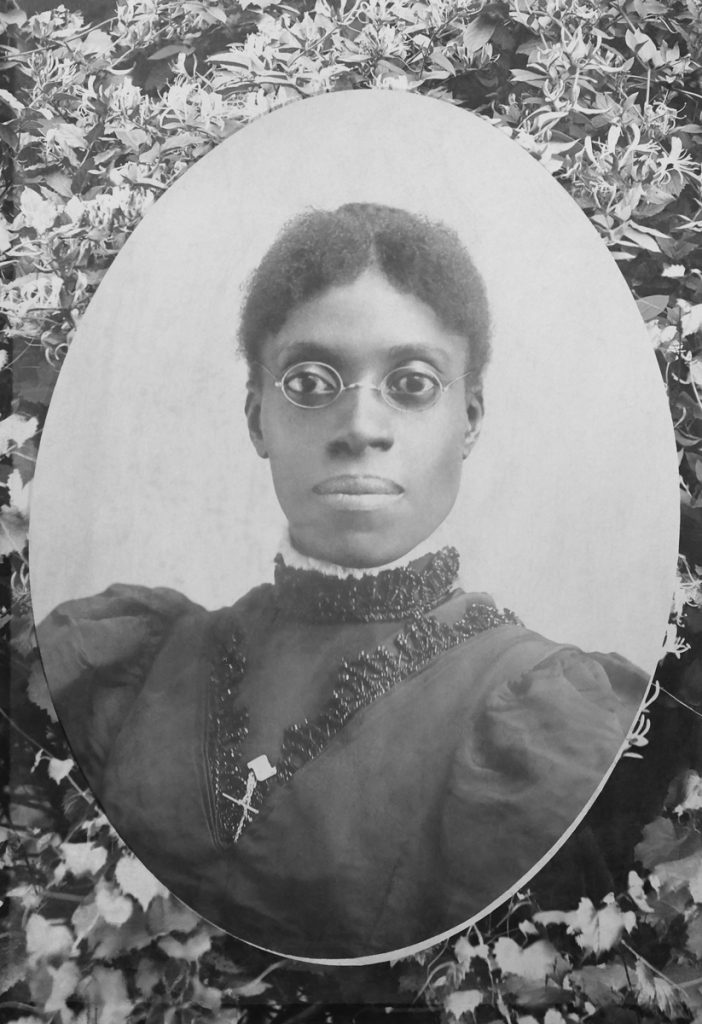
Metadata is another part of the digitization process—the need to find and embed information about where the photo was taken, what’s going on in the photo and the period of time when the photo was taken, the vice president said. “That takes time and resources, people and equipment,” she added. “It is not like a scanner that you could get at Walmart or Target because the photo sizes have to have certain equipment to do the work. There are negatives that need to be worked with as well.”
Dr. Wilson estimated that the school’s archival photo collection likely has more than 200,000 photos, but the grant will cover 50,000 of them.
Along with images of activism, civil rights and performing arts, JSU will also digitize the “Phillis Wheatley Poetry Festival, the illustrations of Tracy Sugarman,” the “Freedom Summer Photograph Collection” and the “Gibbs-Green Memorial Collection.”
“We chose them because we were trying to get things that were centered around HBCU heritage,” Wilson said. “Jackson State is one of the largest HBCUs in the country. We wanted to pick up the cultural experiences and the diversity, which makes Jackson State who Jackson State is.”
The dean of libraries explained that some of these photos need to be handled with extreme care due to their age and fragility. Some items have had to be stored in special films and folders, and others require certain temperatures, she said.
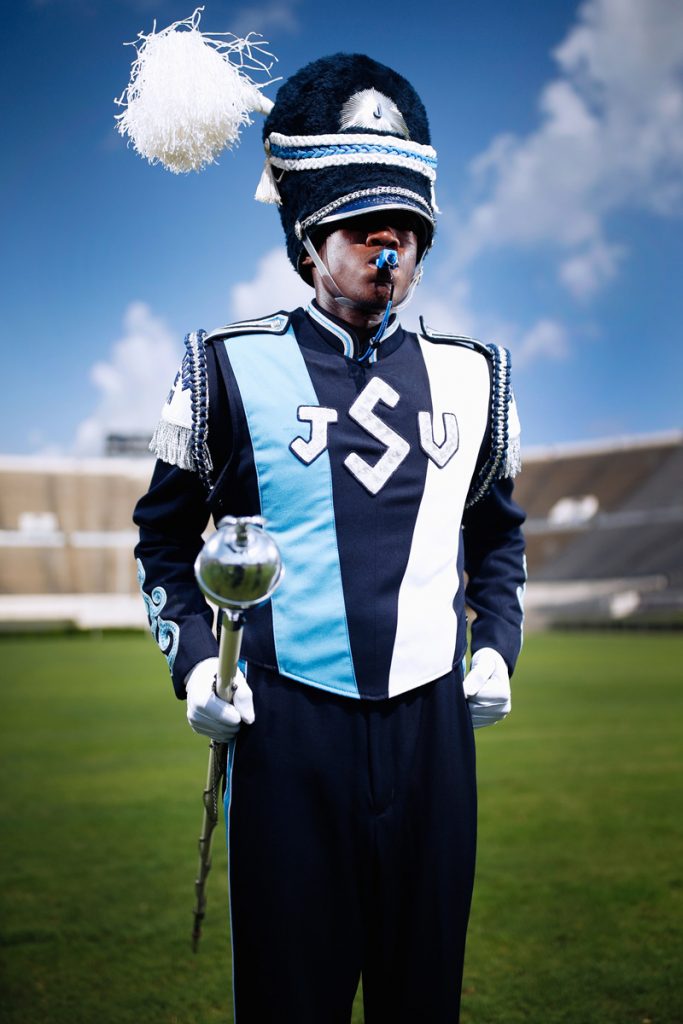
“We discussed that with Getty Images. They’re going to come to a library and work in our archives. They’re going to be scanning our material, and they know that some of the materials will have to be treated very carefully,” Wilson said.
“Some of the corners are torn, and some of the papers are so thin. Some of them have been put in frames years ago, so they’re going to have to be carefully taken out of the frame in order to be scanned.”
Illidge said that she, Getty Images’ archivists and Adnet Global—a post-production agency that specializes in digitization and restoration—will go to each school to spend one-on-one time with them to learn about their histories.
“We’ll actually document it. We’ll be sharing photos of things like going into the library, talking to the archivist and letting them share their stories. We’ll be putting that on the website as well, in a blog,” the Getty Images vice president explained.
Getty is still working out the logistics on when teams will conduct school visits, given the current COVID-19 climate. “This is like a full-on journey, and each one of the schools is going to be so unique. That’s why we want to make sure we take our time to do this process correctly and respectfully,” Illidge said.
HBCUs to Retain All Copyrights
Jackson State and the other recipients will retain all copyrights for the photos in the HBCU collection, and licensing will be available early 2022. Copyright is defined as a form of intellectual property law that protects original works of authorship including literary, dramatic, musical and artistic works.
Copyright consideration is a vital issue for original photography and other works.
“If you just go take a photo yourself, you automatically have a copyright on that photo, and you don’t have to register it or anything. If I took that photo and put it on my business website, or I used it for any kind of commercial purpose, and I made money, you could send me a cease and desist letter,” Attorney Michael Cory Jr., an expert in copyright law, told the Mississippi Free Press.
“You could ultimately obtain damages, or I could have to pay you for profits that I made using your image,” he added.
Although it is a public university, the photos in the collection will remain Jackson State’s property, stopping anyone from using the images without the school’s knowledge, Wilson said.
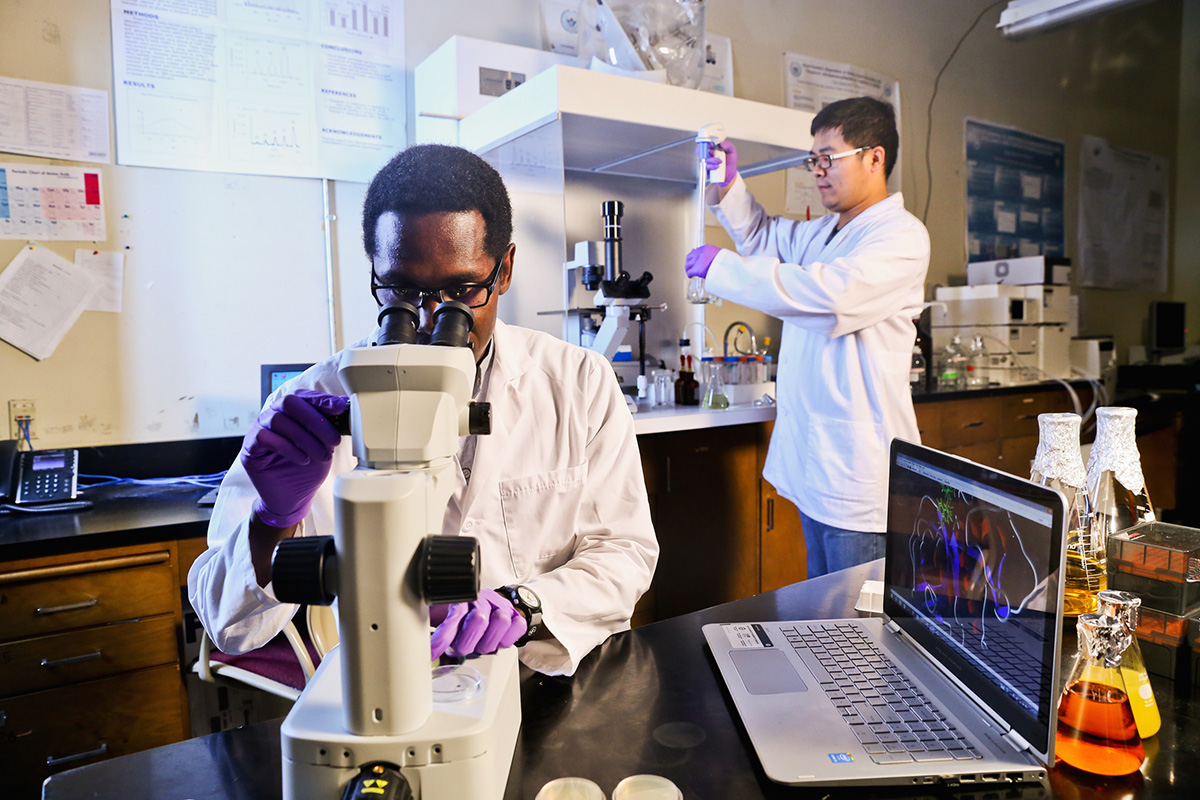
“That’s always an issue with libraries,” the interim dean of libraries said. “That’s just like writing a composition paper and not giving the author credit for your work. You see your pictures showing up everywhere.”
To curtail that problem, Wilson said the library now has forms in place for people who want to copy their material or use them, though they must state their purposes for using the materials, she said.
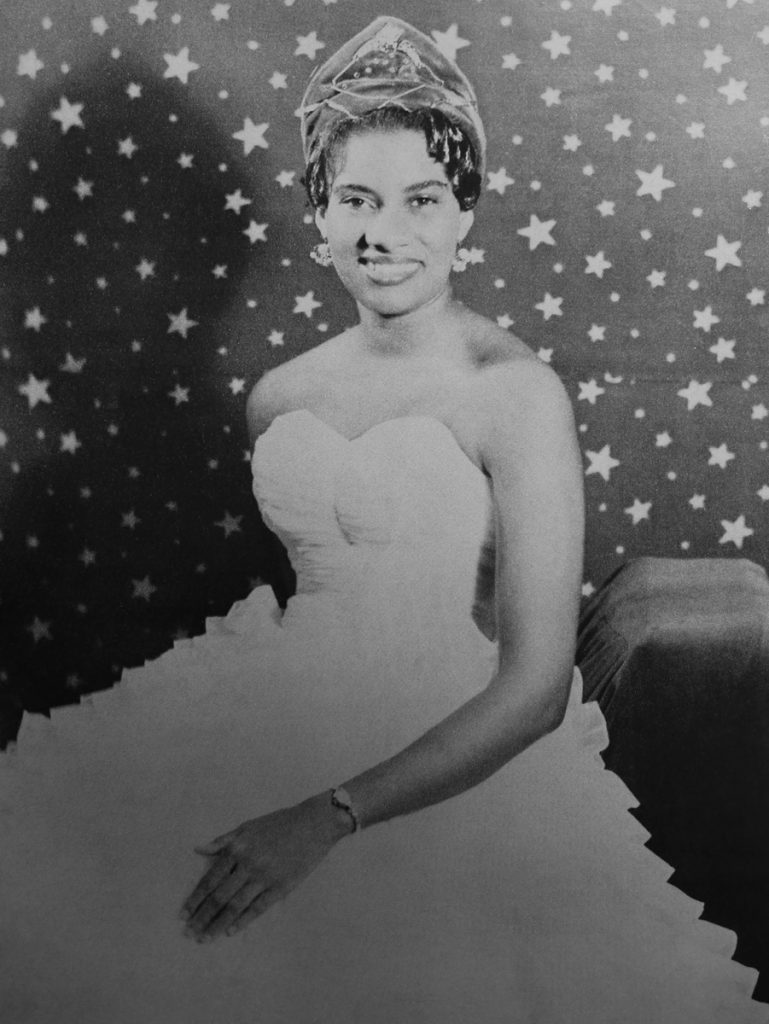
“Copyright trumps First Amendment,” Cory Jr. said. “Certainly you can ask whatever information you want. You want to know what the nature of the use is because it may affect how you price things, and not all photos necessarily have the same value. Somebody may want to exclusively license the use of a photo.”
To use copyrighted images, one needs a licensing agreement where a copyright holder can grant permission to use the image in specific ways. There are different types of rights and terms that can be used in specific licensing agreements.
Editorial rights are for images used for educational purposes like for blogs, newspapers, magazines, print publications and other educational resources. Commercial rights are required for any uses that could result in monetary gain such as marketing, paid ads, website use and other promotions.
Digital rights are for digital versions of an image, and physical rights give access to hardcopy, tangible photographs, Carro reports.
Getty itself would have to license one of the HBCU photos it helps digitize in order to use it. “Commercial uses require an approval from the copyright holder. Getty Images would contact the HBCU to secure an approval in all instances where customers express an interest in licensing content from the HBCU Photo Collection for commercial uses,” Illidge said.
Illidge said Getty Images will not retain any portion of revenue generated from the HBCU Photo Collection. Royalties from licensing the collection will be used to fund the continuation of the grant. “And the remaining 20% to reinvest into this so that we can fund it for the future—we want to fund it so we can work with another four (schools) next year or two next year, depending on capacity,” she said.
Fifty percent of the revenue Jackson State will generate from licensing the images will go to the schools, 30% will go toward scholarship funds focused on furthering the education of students at HBCUs, and 20% will be reinvested in the photo archive grant funds each year, the press release states.
Wilson said the revenue garnered from licensing the images can help school staff digitize more photos in the other areas of the archive and perhaps even get them their own digitization equipment so that staff can train to do it themselves.
“We wanted to make sure that the schools receive the bulk of the revenue, so it’s thinking about the schools today, but then the future. Giving money to scholarships so that students can continue their education is extremely important to us,” Illidge said.
Revenue generated from licensing photos will create scholarships for students majoring in business, advertising, media, accounting and even journalism (not necessarily photojournalism, she said), who can all apply. Scholarships will be associated with the United Negro College Fund or the Thurgood Marshall College Fund.
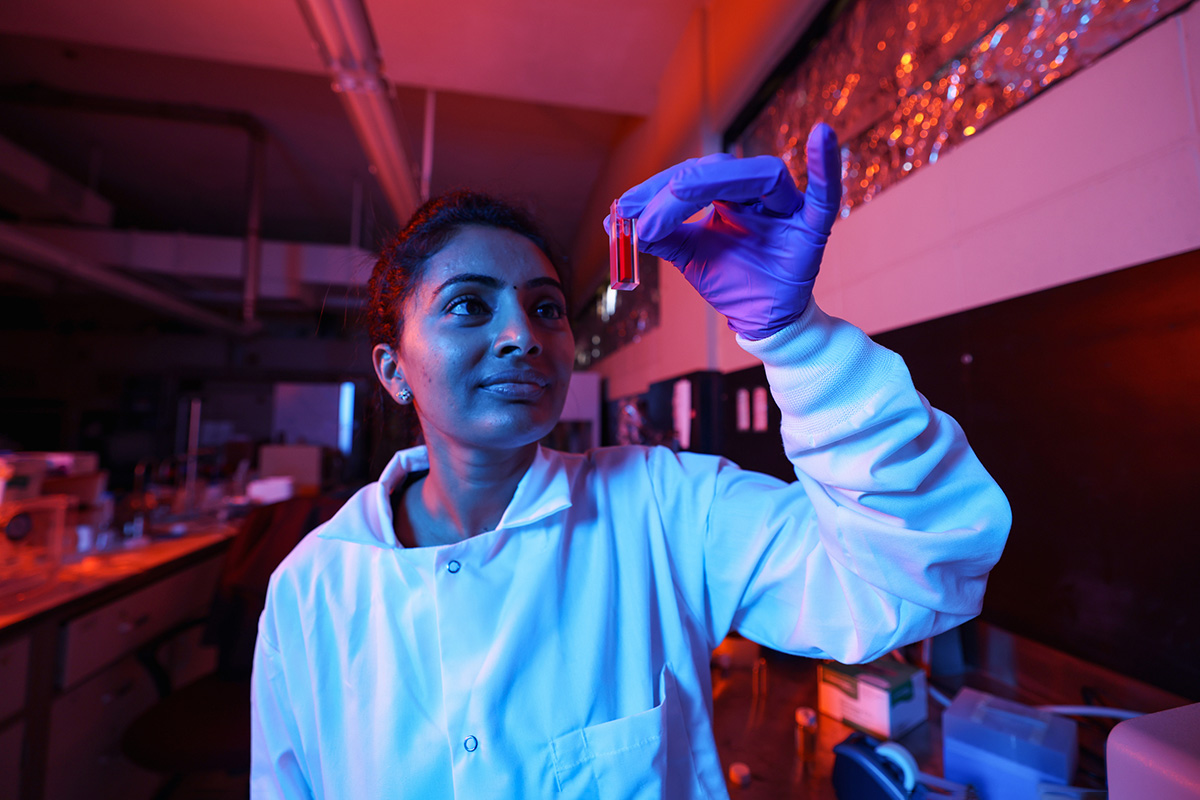
“It is a pivotal moment in time for us to make a real impactful change in how we depict culture, and we are excited to work with HBCUs,” Illidge said. “Our hope is that everyone just looks at it and sees the joy that comes out of the experience of going to HBCU.”
Dr. Wilson added that the Getty collaborative opportunity is fortunate for the library and for the school, as JSU will be able to get its material and history out to people around the world.
“People in the working world can benefit,” she said about the photos’ digitization. “People doing genealogy (and) historical work can benefit because you may be looking for a family member. We have had people doing that in our archives and they have found that their great-great grandfather went here.”

